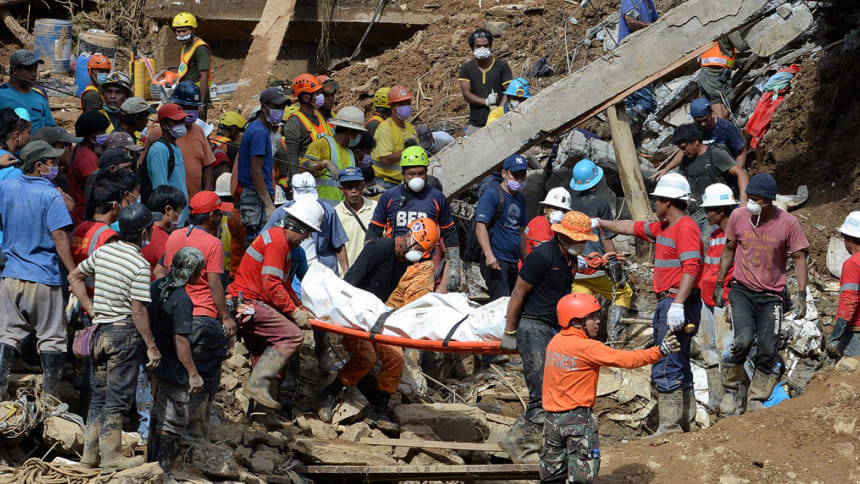12 killed, dozens missing in new Philippine landslide

Twelve people were killed and dozens missing after a landslide unleashed by monsoon rains struck in the central Philippines Thursday, inflicting more misery on the already storm-battered nation.
The new tragedy comes just days after 2018's most powerful storm, Typhoon Mangkhut, pounded the nation's north with heavy winds and rain, sparking a separate landslide that left dozens dead.
Emergency workers in helmets and locals with shovels rushed to search for survivors of the new disaster, which happened in the village of Tina-an on the popular tourist island of Cebu.
Days of heavy monsoon rains caused a steep slope of crumbly limestone and soil to collapse into at least 10 homes early Thursday when many people would still have been in bed.
“Even four-storey houses are buried,” said witness John Rhay Repuesto Echavez, who also saw the human toll of the slide.
“(My neighbour) was crying right in front of her sister's house. There was nothing left, not even the rooftop was visible,” he told AFP. “Her sister’s whole family was buried.”
Injured survivors were wheeled into the back of ambulances and the dead were laid on pews at a local church.
“We have 12 dead now,” civil defence spokesman Julius Regner told AFP, adding at least 50 people were still believed missing.
“There are more than 100 rescuers on the site. They are using backhoes (excavators) and other heavy equipment,” he added.
Civil defence officials in the region said landslides are fairly rare on Cebu, an elongated island with low hills that did not take a direct hit from Mangkhut.
As Thursday’s search for survivors unfolded, efforts continued in the hunt for bodies in the mining area of Itogon in the mountainous north of the Philippines, which was the area worst hit by the typhoon.
Most of those killed in the storm died in landslides in the Cordillera range, which includes Itogon and other towns in a region known for gold mining.
Police said on Thursday that the death toll rose to 88, primarily due to corpses recovered from the Itogon slide.
Mangkhut swamped fields in the nation's agricultural north and smashed houses when it tore through at the weekend.
Itogon is one of the country's oldest mining hubs, with known gold panning activity stretching back to before the 17th-century Spanish colonial conquest.
Thousands of people from all over the country still flock to the upland town seeking their fortune in largely unregulated mining, which is accompanied by periodic deadly accidents.

 For all latest news, follow The Daily Star's Google News channel.
For all latest news, follow The Daily Star's Google News channel. 








Comments